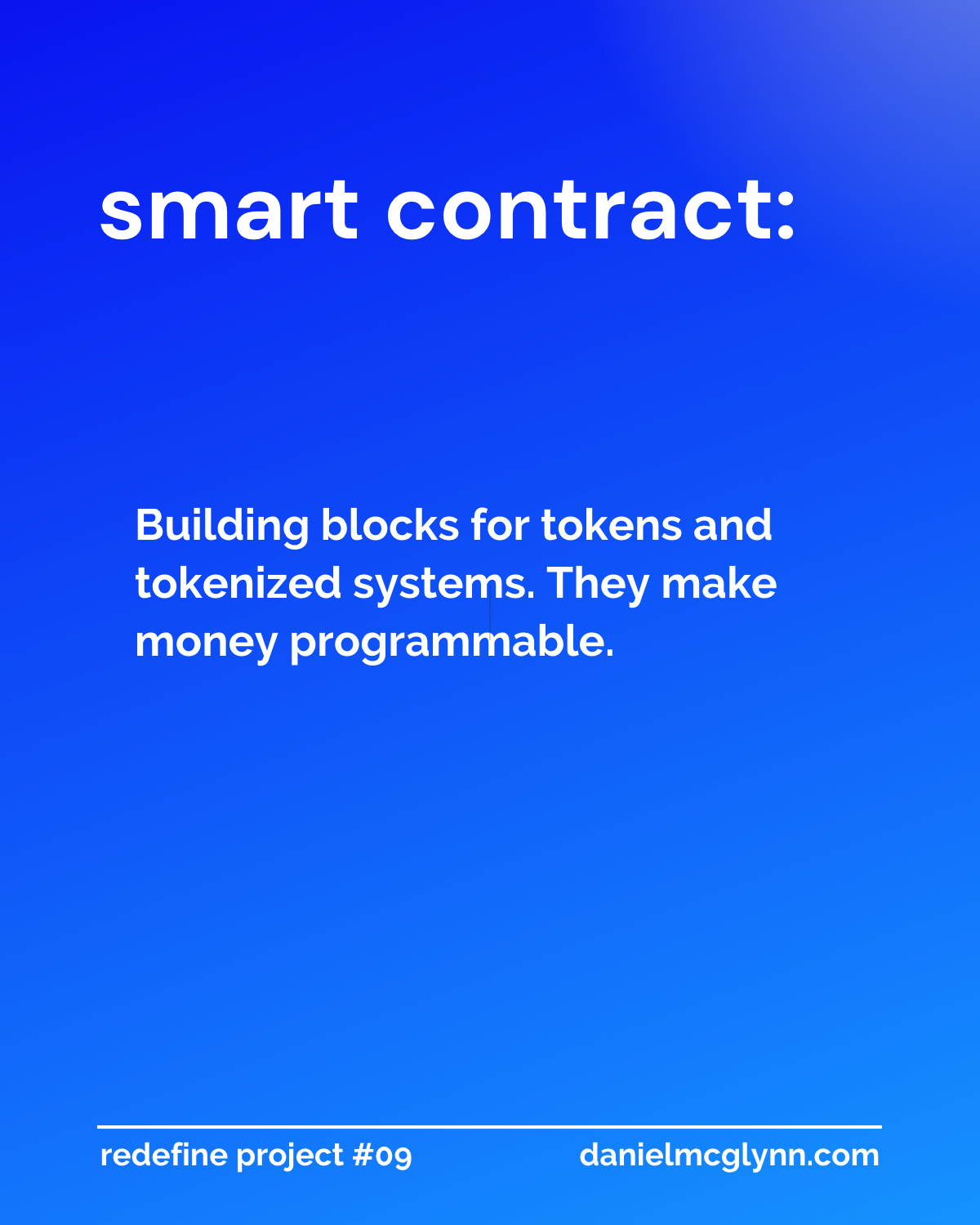A smart contract is a major innovation of decentralized/blockchain tech.
Put simply, smart contracts are rules or agreements that are written in computer code and that can be based on external events or data and that execute themselves once certain conditions are met.

Smart contracts can range from very simple agreements (like Bob will pay Alice X amount once Y condition is met), or they can be more complex and derived from a number of different inputs, outputs, and conditions.
Smart contracts can even pull in data to digital contracts from the real world by using things called oracles, which basically collect and confirm real world data and make it available to blockchains and other decentralized tech.
What makes smart contracts unique or novel, is the promise of efficiency. Since smart contracts are blockchain-based, they are built on the attributes of decentralization. Smart contracts, like the blockchains they operate on, are immutable and permissionless.
Overtime, as more and more of the world’s assets and information become tokenized, then the utility and role of smart contracts in everyday life and business will likely grow.
A paper from Harvard Law, which talks about both the potential and limitations of smart contracts gives two examples of where smart contracts can help with efficiency.
One example is “procure-to-pay” gaps. In this example, when a package or delivery is scanned during final delivery, that scan would trigger a contract on a blockchain, and payment for the goods would be paid immediately on delivery. This cuts out multiple steps of most current processes that require billing, payment, etc.
Another common use of smart contracts is to create stablecoins. A stablecoin is a token that has a fixed price peg to an asset, such as a traditional currency (like the dollar). A smart contract can maintain the right collateral levels by executing orders with treasury to maintain the fixed price peg, which keeps the digital currency stable.
A large portion of new crypto/defi/web3 products are based on smart contracts and the utility and sophistication of the kinds of activities and functions of smart contracts is only likely to increase in the future.